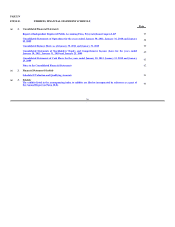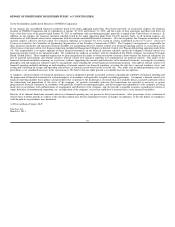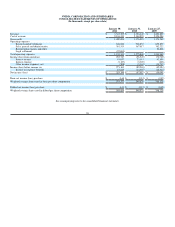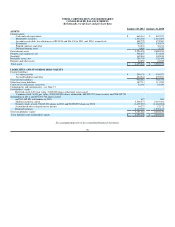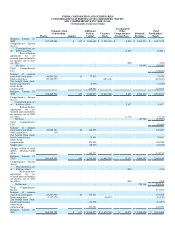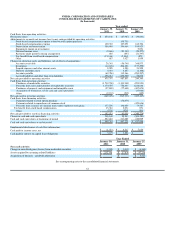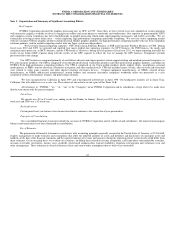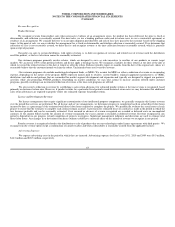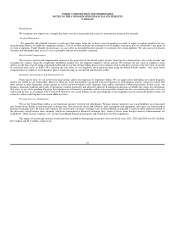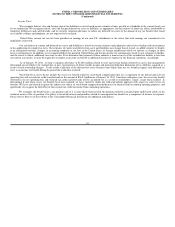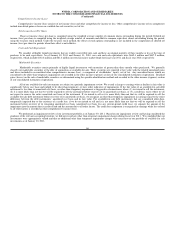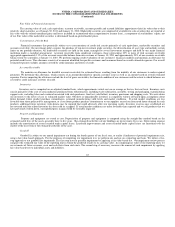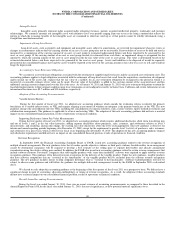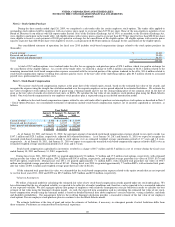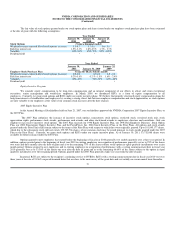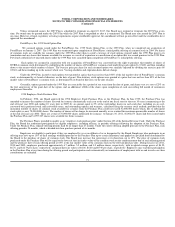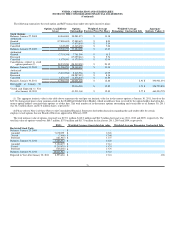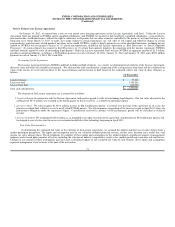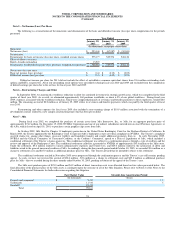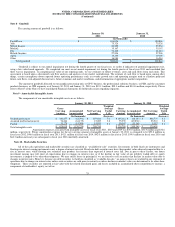NVIDIA 2011 Annual Report Download - page 68
Download and view the complete annual report
Please find page 68 of the 2011 NVIDIA annual report below. You can navigate through the pages in the report by either clicking on the pages listed below, or by using the keyword search tool below to find specific information within the annual report.
NVIDIA CORPORATION AND SUBSIDIARIES
NOTES TO THE CONSOLIDATED FINANCIAL STATEMENTS
(Continued)
Income Taxes
We recognize federal, state and foreign current tax liabilities or assets based on our estimate of taxes payable or refundable in the current fiscal year
by tax jurisdiction. We recognize federal, state and foreign deferred tax assets or liabilities, as appropriate, for our estimate of future tax effects attributable to
temporary differences and carryforwards; and we record a valuation allowance to reduce any deferred tax assets by the amount of any tax benefits that, based
on available evidence and judgment, are not expected to be realized.
United States income tax has not been provided on earnings of our non-U.S. subsidiaries to the extent that such earnings are considered to be
indefinitely reinvested.
Our calculation of current and deferred tax assets and liabilities is based on certain estimates and judgments and involves dealing with uncertainties
in the application of complex tax laws. Our estimates of current and deferred tax assets and liabilities may change based, in part, on added certainty or finality
to an anticipated outcome, changes in accounting standards or tax laws in the United States, or foreign jurisdictions where we operate, or changes in other
facts or circumstances. In addition, we recognize liabilities for potential United States and foreign income tax contingencies based on our estimate of whether,
and the extent to which, additional taxes may be due. If we determine that payment of these amounts is unnecessary or if the recorded tax liability is less than
our current assessment, we may be required to recognize an income tax benefit or additional income tax expense in our financial statements, accordingly.
As of January 30, 2011, we had a valuation allowance of $148.0 million related to state and certain foreign deferred tax assets that management
determined are not likely to be realized due, in part, to projections of future taxable income and potential utilization limitations of tax attributes acquired as a
result of stock ownership changes. To the extent realization of the deferred tax assets becomes more-likely-than-not, we would recognize such deferred tax
asset as an income tax benefit during the period the realization occurred.
Our deferred tax assets do not include the excess tax benefit related to stock-based compensation that are a component of our federal and state net
operating loss and research tax credit carryforwards in the amount of $565.2 million as of January 30, 2011. Consistent with prior years, the excess tax benefit
reflected in our net operating loss and research tax credit carryforwards will be accounted for as a credit to stockholders’ equity, if and when realized. In
determining if and when excess tax benefits have been realized, we have elected to utilize the with-and-without approach with respect to such excess tax
benefits. We have also elected to ignore the indirect tax effects of stock-based compensation deductions for financial and accounting reporting purposes, and
specifically to recognize the full effect of the research tax credit in income from continuing operations.
We recognize the benefit from a tax position only if it is more-likely-than-not that the position would be sustained upon audit based solely on the
technical merits of the tax position. Our policy is to include interest and penalties related to unrecognized tax benefits as a component of income tax expense.
Please refer to Note 14 of these Notes to the Consolidated Financial Statements for additional information.
65


